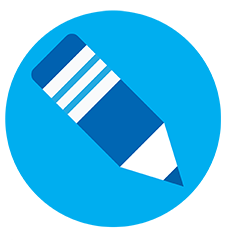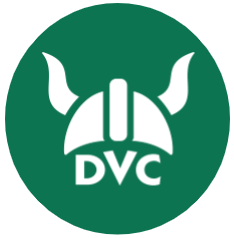 Arts, Communication & Language Student Center
Arts, Communication & Language Student Center
Welcome to the Arts, Communication & Languages Student Center. Visit us on campus or online to connect to peer tutors, counselors and support services to help you complete your path.
Zoom Room
Hours
- Monday - Thursday: 8:30 am - 5 pm
- Friday: 8:30 am - 3 pm
Communication/Speech
- Monday: 12 pm - 5 pm
- Tuesday: 9 am - 1 pm; 2 pm - 5 pm
- Wednesday: 10 am - 2 pm
- Thursday: 9 am - 5 pm
- Friday: 9 am - 3 pm
Drama
- Monday: 11 am - 2 pm
- Tuesday: 2:30 pm - 4:30 pm
- Wednesday: 9 am - 12 pm
- Friday: 9 am - 12 pm
Humanities
- Wednesday: 3 pm - 5 pm
Music
- Tuesday: 1 pm - 3 pm
- Wednesday: 1 pm - 4 pm
Philosophy
- Tuesday: 11 am - 1 pm
Reading and Writing
- Monday: 9 am - 5 pm
- Tuesday: 9 am - 5 pm
- Wednesday: 9 am - 5 pm
- Thursday: 9 am - 5 pm
- Friday: 9 am - 3 pm
World Language (Chinese)
- Monday: 2 pm - 3 pm
World Language (Japanese)
- Monday: 3 pm - 5 pm
- Tuesday: 1 pm - 4 pm
- Wednesday: 12 pm - 4 pm
- Thursday: 12 pm - 3 pm
World Language (Russian)
- Tuesday: 1 pm - 2 pm
- Wednesday: 9 am - 12 pm
All subjects - nights/weekends
- NetTutor is available nights, weekends and holidays when our Student Centers are closed.
Online tutoring through Zoom
- Monday-Thursday: 10 am - 4 pm
- Friday: 10 am - 3 pm
Drop-in counseling is available every Wednesday from 1 pm - 3 pm.
Online Support
Access free, online support and tutoring in reading and writing:
- Click the Zoom Room button to connect.
- A host will connect you with the next available tutor or counselor. Please complete the intake form the host shares with you in the chat and stay muted until your tutor or counselor is ready.
- Online support sessions typically last about 30 minutes (and can be longer if time allows).
Online Support Hub
 The DVC Support Hub in Canvas can connect you with online ed planning tools, technology help, health
and wellness services, basic needs support, career and transfer services, student
life and more! Log in with your InSite username and password to access services.
The DVC Support Hub in Canvas can connect you with online ed planning tools, technology help, health
and wellness services, basic needs support, career and transfer services, student
life and more! Log in with your InSite username and password to access services.
Location
PAC 101, 102, 106 (map)
Hours
- Monday - Thursday: 8:30 am - 5 pm
- Friday: 8:30 am - 3 pm
Communication/Speech
- Monday: 12 pm - 5 pm
- Tuesday: 9 am - 1 pm; 2 pm - 5 pm
- Wednesday: 10 am - 2 pm
- Thursday: 9 am - 5 pm
- Friday: 9 am - 3 pm
Drama
- Monday: 11 am - 2 pm
- Tuesday: 2:30 pm - 4:30 pm
- Wednesday: 9 am - 12 pm
- Friday: 9 am - 12 pm
Humanities
- Wednesday: 3 pm - 5 pm
Music
- Tuesday: 1 pm - 3 pm
- Wednesday: 1 pm - 4 pm
Philosophy
- Tuesday: 11 am - 1 pm
Reading and Writing
- Monday: 9 am - 5 pm
- Tuesday: 9 am - 5 pm
- Wednesday: 9 am - 5 pm
- Thursday: 9 am - 5 pm
- Friday: 9 am - 3 pm
World Language (Chinese)
- Monday: 2 pm - 3 pm
World Language (Japanese)
- Monday: 3 pm - 5 pm
- Tuesday: 1 pm - 4 pm
- Wednesday: 12 pm - 4 pm
- Thursday: 12 pm - 3 pm
World Language (Russian)
- Tuesday: 1 pm - 2 pm
- Wednesday: 9 am - 12 pm
All subjects - nights/weekends
- NetTutor is available nights, weekends and holidays when our Student Centers are closed.
Online tutoring through Zoom
- Monday-Thursday: 10 am - 4 pm
- Friday: 10 am - 3 pm
Drop-in counseling is available every Wednesday from 1 pm - 3 pm.
Visit our collaborative work space on campus, where you can connect with peers, instructors and support staff in arts, communication and languages. Here you'll find:
- computers
- wifi and charging stations
- small group and individual workspaces
- peer tutors for drop-in academic support
- instructors offering student office hours
- counselors for drop-in ed planning and/or personal concerns (fall/spring)
Explore careers, certificates & degrees
Learn more
Tutoring is a one-on-one meeting with someone who knows a subject well and can help you improve your reading, writing, grammar, and study skills. Our tutors are trained to help you with writing projects and studying for any subject. Tutoring allows you to move at your own pace and create your own goals.
It is important to understand that tutors do not edit or fix your papers. Instead, tutors help you develop the skills you need to improve your own work.
All students enrolled at DVC may have up to two hours of free tutoring per week.
Tutor in our Arts, Communication, and Languages Center
We are always looking for new members of our tutoring team. If you enjoy and are good at reading and writing, have strong social skills, and like to help people, then we encourage you to consider becoming a tutor. This is a great opportunity to gain leadership skills on campus.
To become a tutor, you must:
- pass English 122 (CID English 100) with a B or better,
- get a recommendation from an instructor,
- complete the application process,
- be enrolled in or have completed English 140, Tutor Training, with a B or better.
For more information, drop by the Arts, Communication, and Language Student Center or email our Tutoring Coordinator, Adam Perry: aperry@dvc.edu.
Tutor through our "supplemental instruction" program
Supplemental instruction (SI) is a free program that helps students in our basic English and ESL classes. Classes with supplemental instruction have an hour-long weekly study group in addition to their regular class time. These study groups provide an opportunity to build on the skills and conversations started in class and are led by SI leaders who also attend the regular class time.
Supplemental instruction is required for: ESL, 67, ESL77, ESL87, and ESL97A. Additionally, some 117A, 122AL, and 122L courses have SI with optional study groups.
To learn more about becoming an SI, please contact the ESL Co-coordinators:
- Rayshell Clapper: rclapper@dvc.edu or 925-969-2621
- Laurie Sample: lsample@dvc.edu
As a result of using tutoring services, students will:
- Feel more confident in their learning and knowledge;
- Have an increased appreciation for the subject;
- Have an increased level of engagement in the subject;
- Be prepared to transition to more advanced concepts;
- Exhibit behavior that promotes success including:
- Asking questions in class and of the instructor;
- Participating in peer discussion;
- Visiting professor in office hours;
- Participating more in class;
- Procrastinating less;
- Taking notes;
- Feeling comfortable with tutoring and asking for help;
- Feeling more connected to classroom learning.
- Exhibit greater academic endurance and independent learning including:
- Having a willingness to attempt difficult material again and again and again (perseverance);
- Understanding available resources and how to access them;
- Learning strategies to be better able to think critically and solve problems independently;
- Recognizing the need for and have an improved understanding of key concepts and fundamentals;
- Be more successful.
Contact
![]() Questions? Email your Arts, Communication & Language Support Team:
Questions? Email your Arts, Communication & Language Support Team:
-
- Heather Lee, Senior Lab Coordinator
- Adam Perry, Faculty Tutoring Coordinator
- Andrea Medina, Faculty Center Lead
- Amber Shields, Faculty Pedagogy Lead
- Noelle Palmer, Career Education Coordinator
- Emily Moss, Librarian
- Lynda Letona, Librarian

